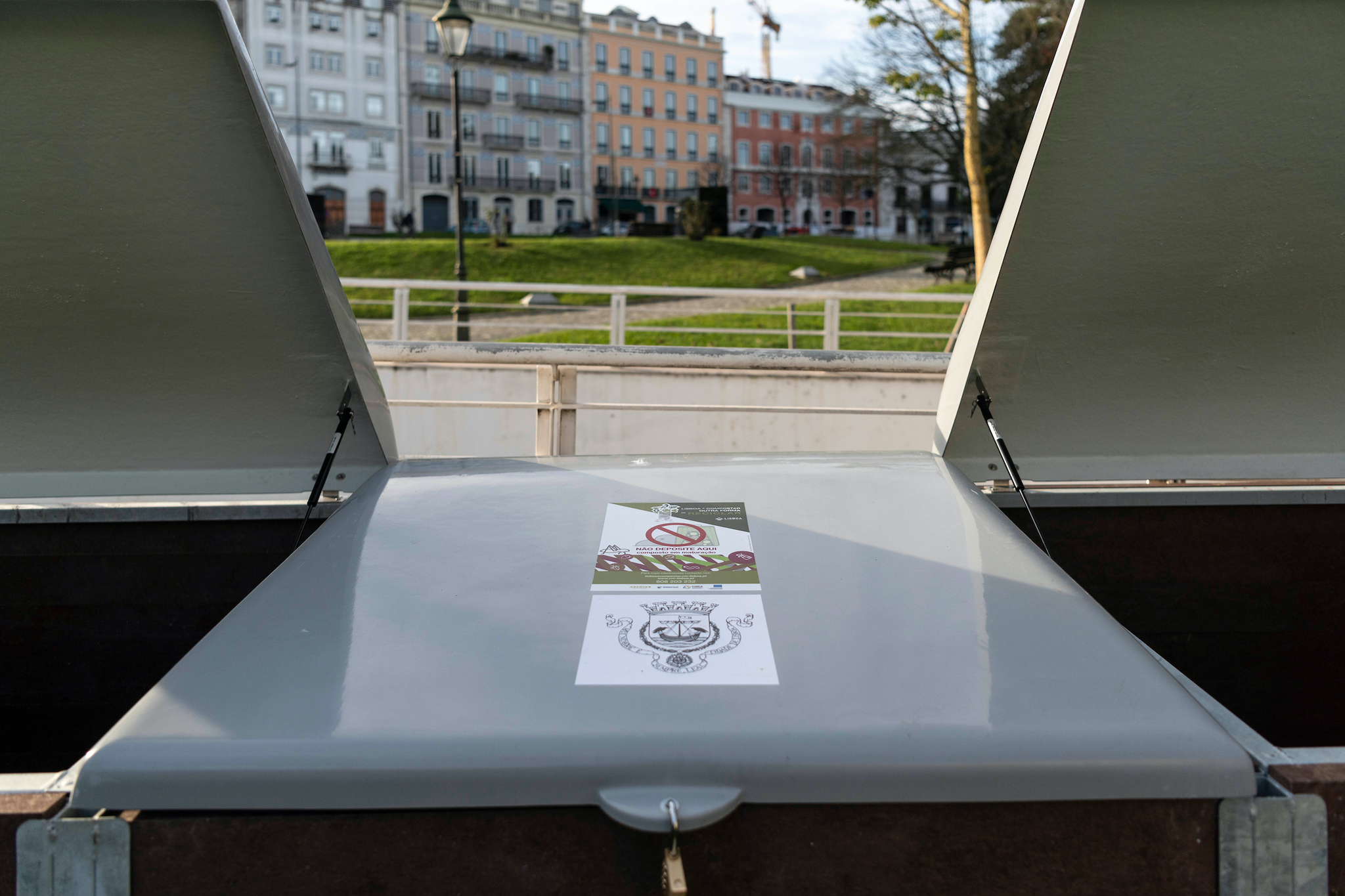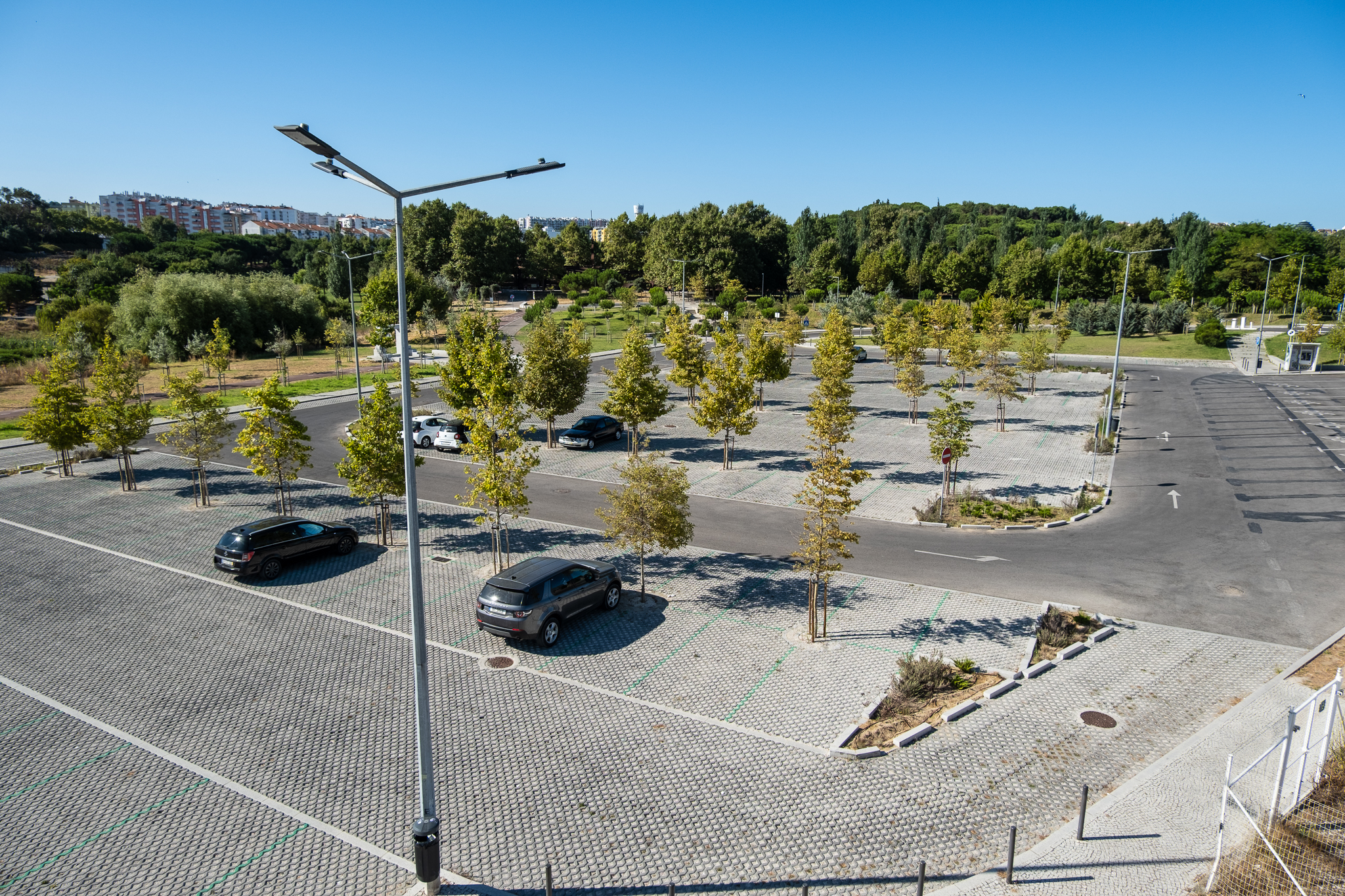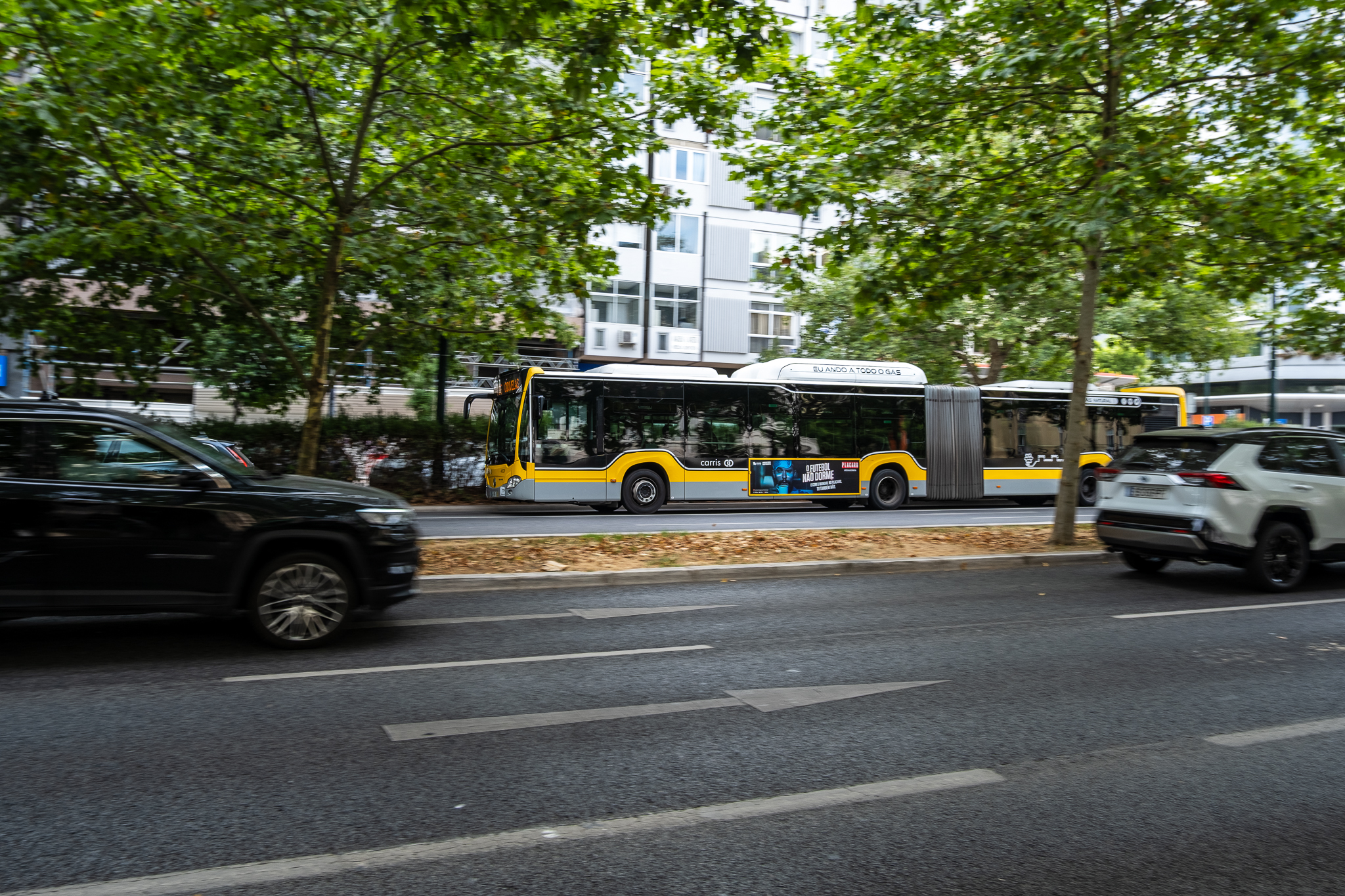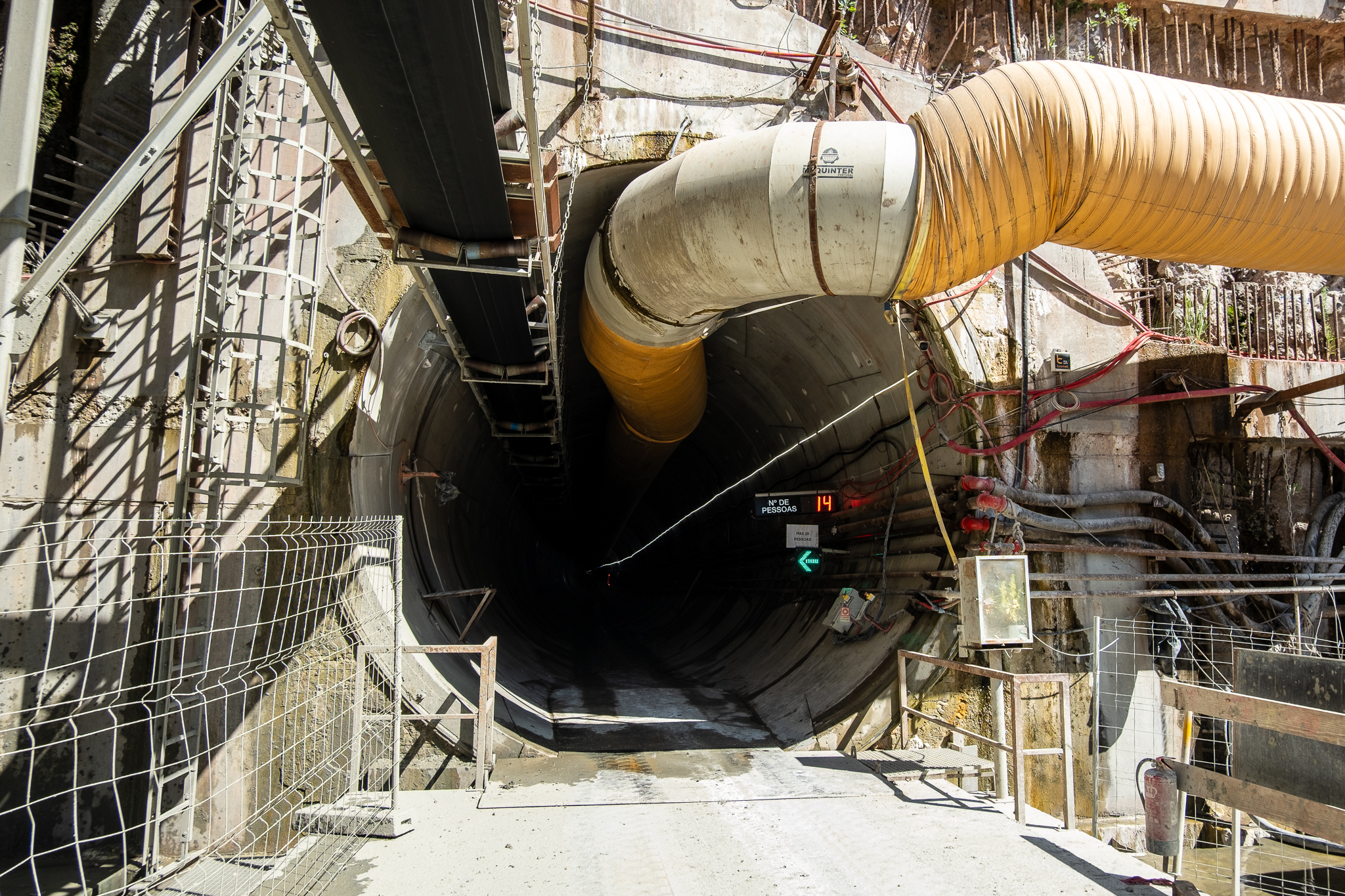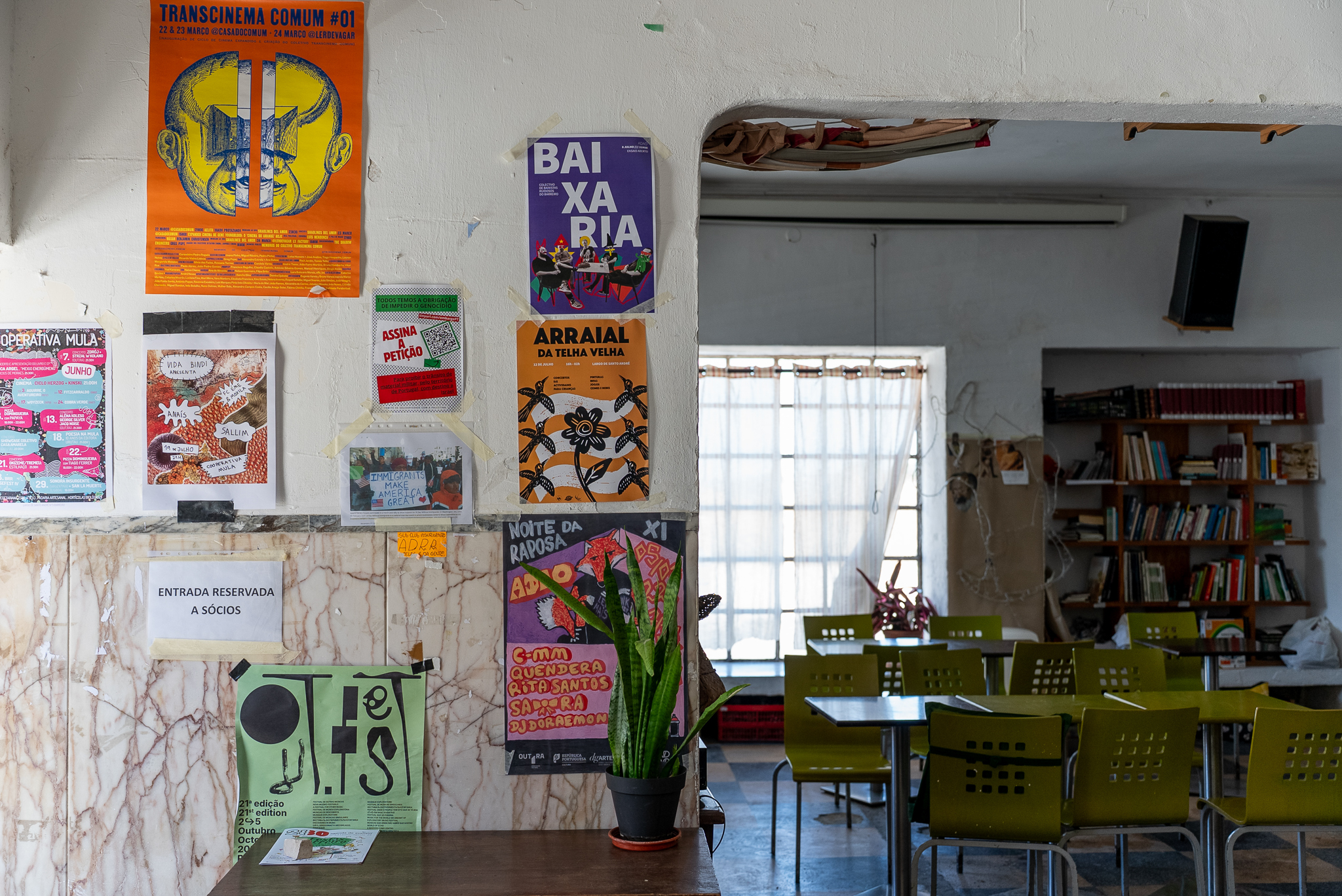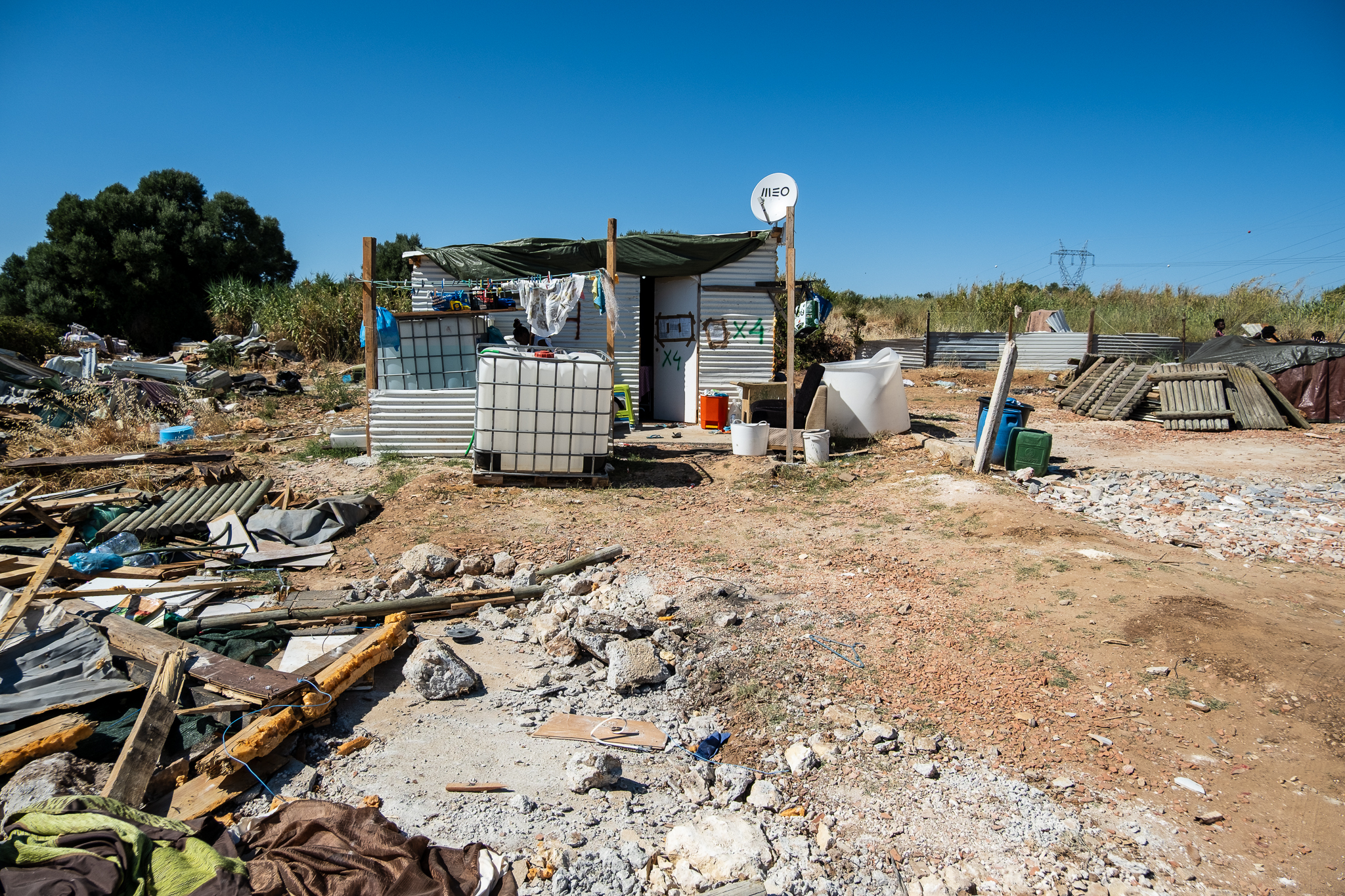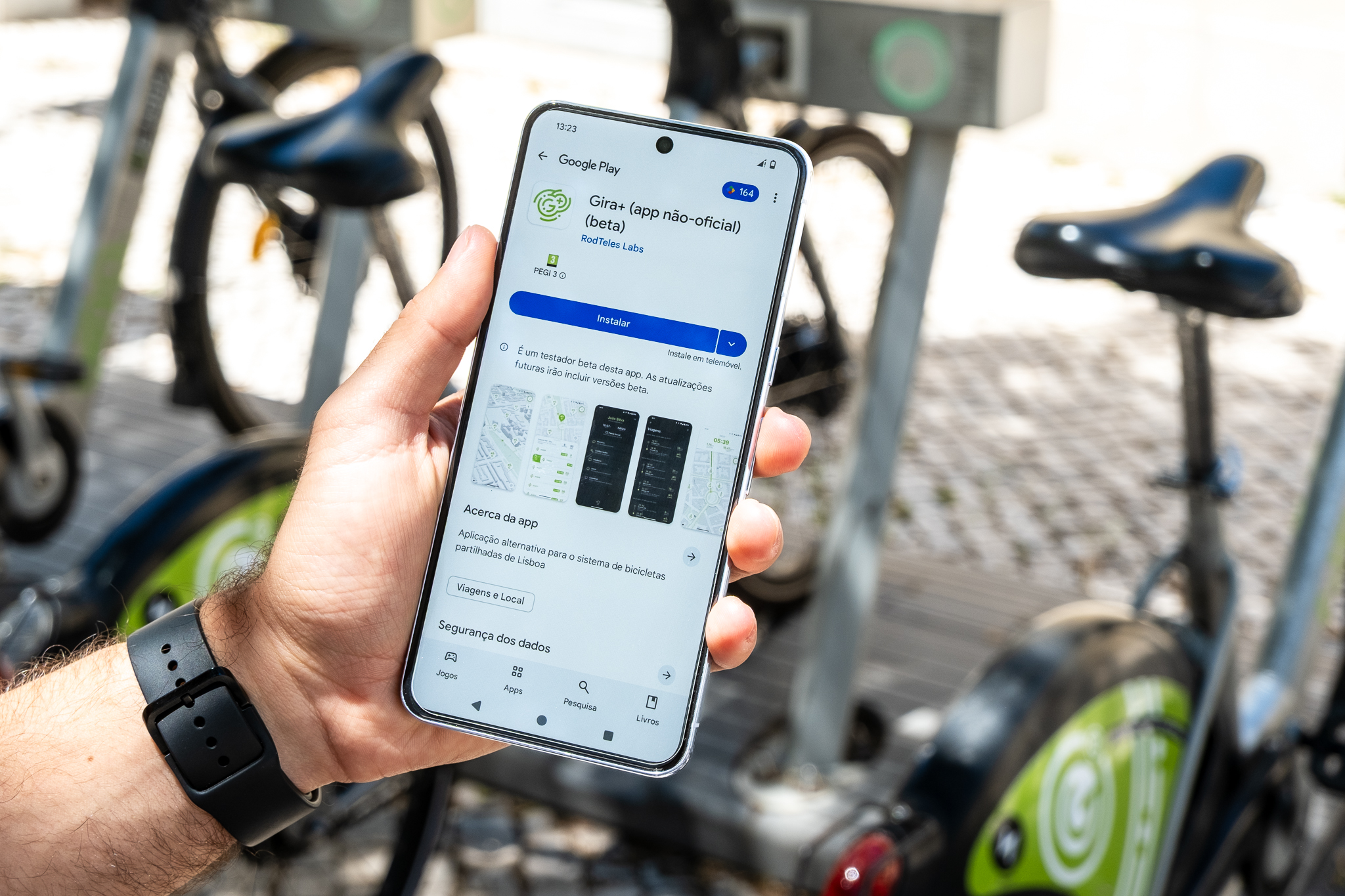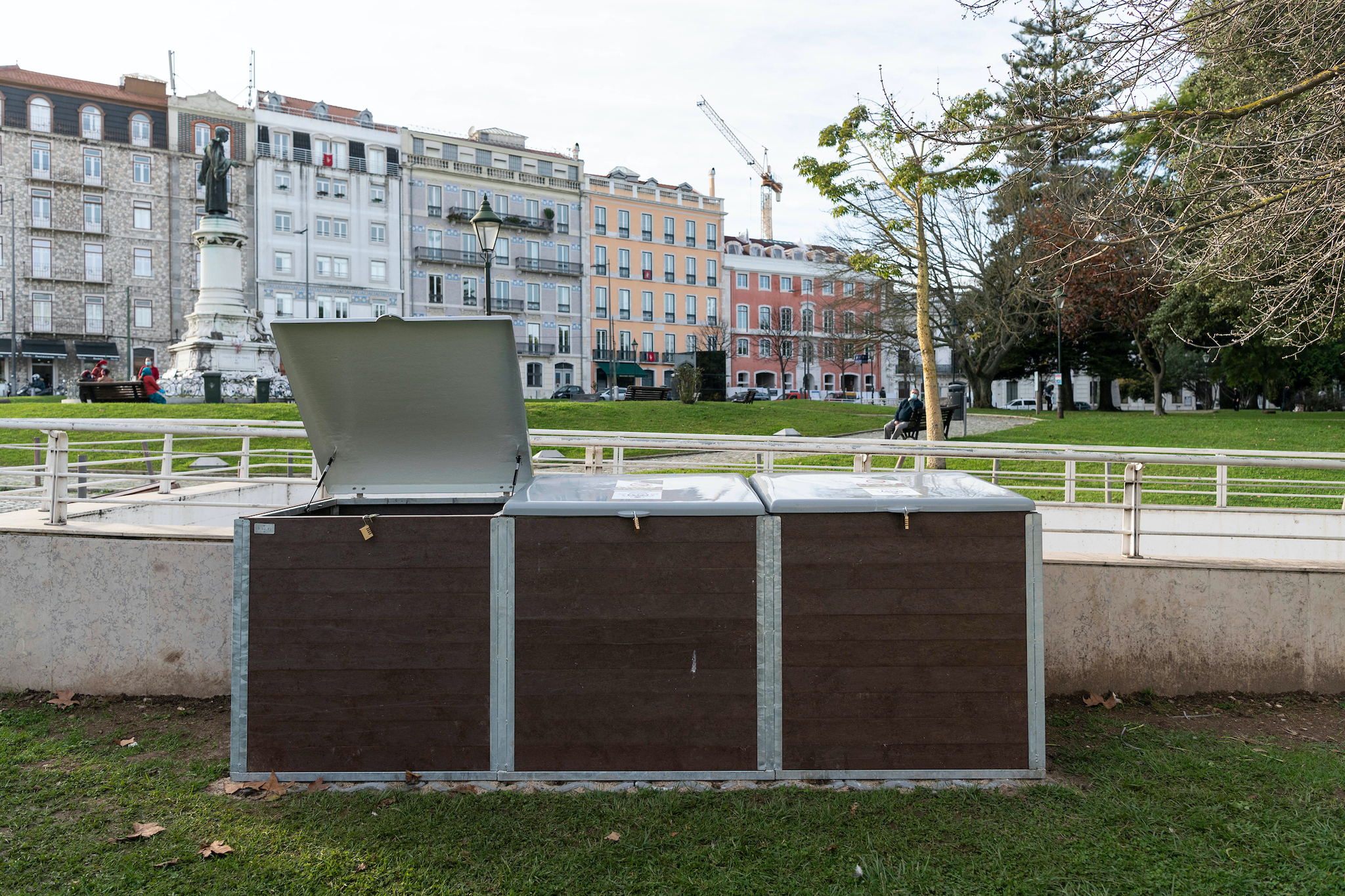
It is estimated that a large part of the household waste produced in the city can be decomposed into "soil" and reused as organic fertilizer for a garden or urban garden, instead of being sent to incineration like other garbage. Composting thus reduces the amount of waste that needs to be transported and treated, but also avoids the purchase and use of artificial fertilizers.
Lisbon plans to extend composting to the entire city by 2023 through a new brown recycling bin at ecoilhas but also from door-to-door selective collection. Another piece in this game are the community composters - there were already five in the city, now there are 10 morelocated in the municipal gardens in the parishes of Arroios, Alcântara, Parque das Nações, Marvila, Estrela, Alvalade, Avenidas Novas, Benfica, Carnide, and São Domingos de Benfica.
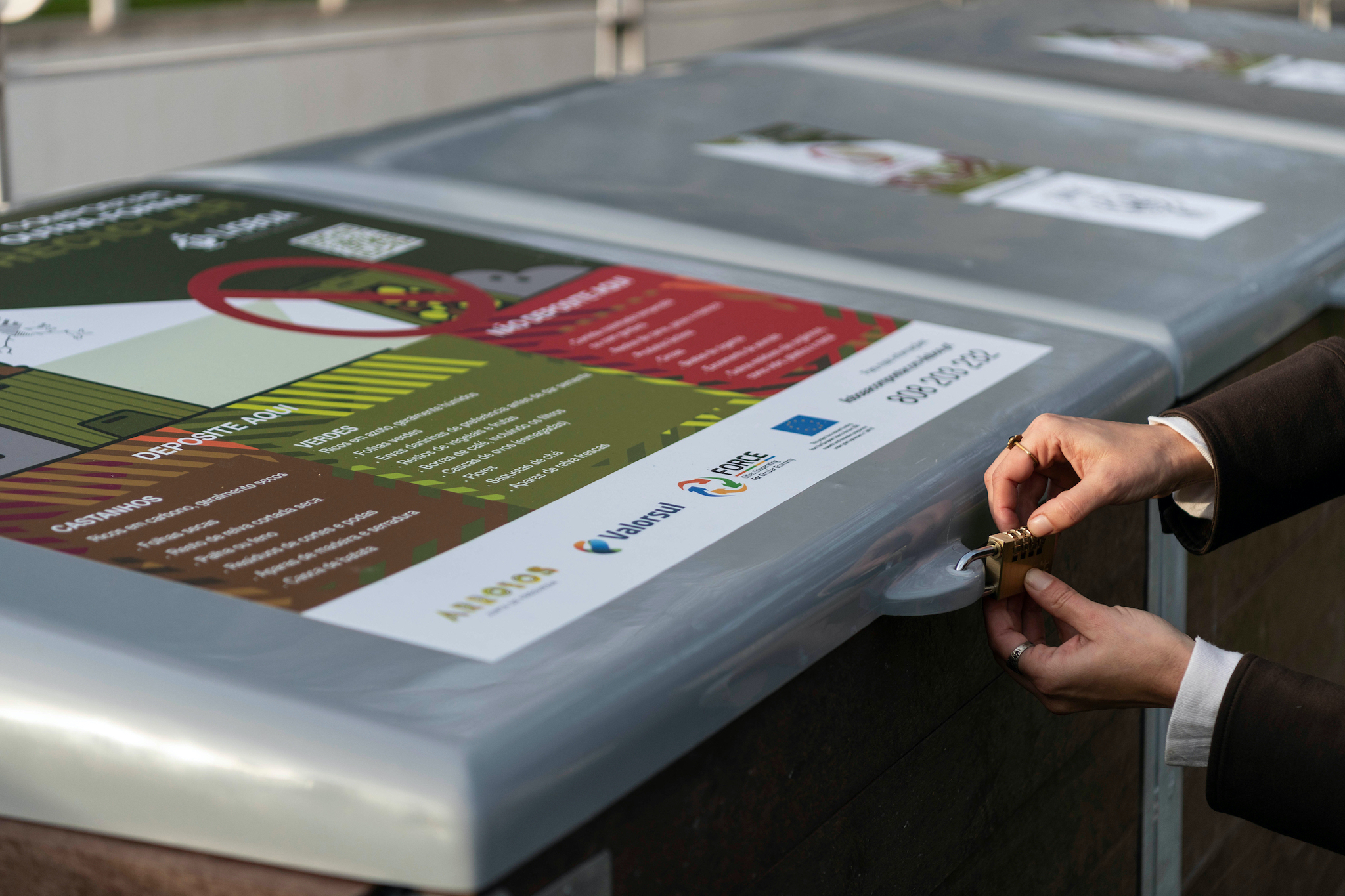
The composters are in public space but locked up, since it is necessary to ensure that their use is respected. To get a key, one must participate in a free training on the rules of composting and how this new reuse process works. Those interested should register on the site Lisbon Composting.
At the end of the composting process, the compost that results from the community composters - managed between the City Council and the Parish Councils - is distributed to all participants and used as fertilizer in the city's green spaces, reducing the waste produced and fostering the circular economy. In Lisbon, four thousand people are currently composting organic waste.
